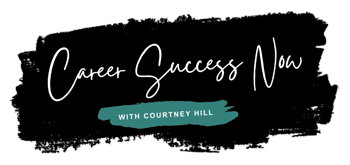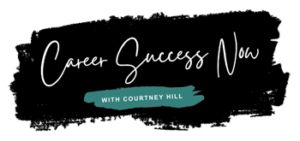I. Introduction
Purpose of Assessment
Career coaching has become an essential service for individuals seeking to navigate their professional journeys, whether they are just starting out, contemplating a career change, or aiming to achieve specific professional goals. The purpose of this assessment is to provide a thorough evaluation of a career coach’s effectiveness and suitability for potential clients. By examining various facets of a career coach’s background, skills, methods, and client interactions, this guide aims to offer a holistic view that will assist individuals in making informed decisions about engaging a career coach.
Scope
The assessment will cover a wide range of areas including the coach’s professional background, core competencies, client outcomes, ethical considerations, and personal fit. Each section will delve into specific attributes and qualifications that are crucial for effective career coaching. The goal is to ensure that potential clients have a clear understanding of what to look for in a career coach and how to evaluate whether a particular coach meets their needs.
II. Background Information
Coach’s Professional Background
A career coach’s professional background serves as the foundation of their credibility and effectiveness. This section examines the educational qualifications, certifications, and work experience that contribute to a coach’s expertise.
Education and Certifications
Educational qualifications and certifications are critical indicators of a career coach’s knowledge and professionalism. Many effective career coaches hold degrees in fields such as psychology, human resources, business administration, or education. Additionally, specialized certifications from recognized institutions can enhance a coach’s credibility. Some notable certifications include:
- Certified Professional Career Coach (CPCC)
- Certified Career Management Coach (CCMC)
- International Coach Federation (ICF) credentials
These certifications often require rigorous training, assessment, and adherence to ethical standards, ensuring that the coach is well-prepared to assist clients effectively.
Relevant Work Experience
Experience in the workforce, especially in roles related to career development, human resources, or organizational management, can significantly enhance a career coach’s ability to provide practical advice. Coaches with a diverse professional background can draw from a wealth of real-world experiences to help clients navigate various career challenges. This section will evaluate the coach’s prior work experience and how it aligns with their coaching practice.
Coaching Philosophy and Methods
A career coach’s philosophy and methods define their approach to helping clients. This section explores the underlying principles and specific techniques employed by the coach.
Approach to Career Coaching
Every coach has a unique approach based on their philosophy, which might be rooted in psychological theories, business strategies, or personal development frameworks. Understanding a coach’s approach helps in assessing their alignment with a client’s needs. Common approaches include:
- Solution-Focused Coaching: Emphasizes finding immediate solutions to specific problems.
- Holistic Coaching: Considers the client’s entire life and how various aspects (personal, professional, emotional) intersect.
- Performance Coaching: Focuses on improving performance in specific areas, often used with executives or athletes.
Techniques and Tools Used
Effective career coaches employ a variety of techniques and tools to assist their clients. These might include personality assessments, goal-setting frameworks, and various exercises designed to improve self-awareness and decision-making skills. Popular tools include:
- SWOT Analysis: Identifying strengths, weaknesses, opportunities, and threats.
- SMART Goals: Setting specific, measurable, achievable, relevant, and time-bound goals.
- Myers-Briggs Type Indicator (MBTI): Assessing personality types to better understand personal preferences and work styles.
III. Core Competencies
Communication Skills
Effective communication is a cornerstone of successful career coaching. This section evaluates the coach’s ability to listen, articulate thoughts clearly, and engage in meaningful dialogue with clients.
Ability to Listen Actively
Active listening involves fully concentrating, understanding, responding, and remembering what the client says. It is crucial for understanding the client’s needs, concerns, and goals. Coaches who excel in active listening can better tailor their advice and support to the individual client.
Clarity and Effectiveness in Verbal and Written Communication
A career coach must communicate clearly and effectively, whether in one-on-one sessions, group workshops, or written materials. This skill ensures that clients fully understand the guidance provided and can implement strategies effectively. Evaluating a coach’s communication skills involves assessing their ability to convey complex ideas simply and their proficiency in writing resumes, cover letters, and other professional documents.
Interpersonal Skills
Interpersonal skills are vital for building a trusting and productive relationship between the coach and the client. This section assesses the coach’s ability to empathize, understand, and connect with clients.
Empathy and Understanding
Empathy involves recognizing and understanding the emotions of others. A career coach who demonstrates empathy can better support clients through their challenges, making them feel understood and valued. This quality helps in creating a safe and supportive environment where clients feel comfortable sharing their concerns and aspirations.
Building Rapport with Clients
Building rapport is about establishing a relationship of mutual trust and respect. Coaches who can quickly build rapport with clients are more likely to foster a productive coaching relationship. This involves being approachable, personable, and responsive to the client’s needs and emotions.
Problem-Solving Skills
Career coaches must be adept at helping clients identify and overcome obstacles. This section evaluates the coach’s ability to analyze problems, develop solutions, and guide clients towards achieving their goals.
Ability to Help Clients Identify and Overcome Obstacles
An effective career coach can help clients recognize the barriers to their success, whether these are internal (such as lack of confidence) or external (such as industry-specific challenges). The coach should provide strategies and tools to overcome these obstacles, empowering clients to progress towards their goals.
Creativity in Developing Solutions
Problem-solving often requires creative thinking and innovation. Coaches who can think outside the box and offer unique solutions are invaluable in helping clients navigate complex career landscapes. This includes suggesting unconventional career paths, alternative job search strategies, or new ways of approaching professional challenges.
Goal-Setting and Planning
One of the primary functions of a career coach is to assist clients in setting and achieving their career goals. This section examines the coach’s ability to facilitate effective goal-setting and planning.
Assisting Clients in Setting Realistic and Achievable Goals
A career coach should help clients set goals that are both ambitious and attainable. This involves understanding the client’s strengths, limitations, and aspirations, and then guiding them to define clear, actionable objectives.
Developing Actionable Plans to Achieve Career Objectives
Beyond goal-setting, a career coach must help clients create detailed plans to achieve their goals. This includes breaking down large objectives into manageable tasks, setting deadlines, and providing ongoing support and accountability.
IV. Assessment of Effectiveness
Client Outcomes
The ultimate measure of a career coach’s effectiveness is the success of their clients. This section evaluates the tangible outcomes achieved by the coach’s clients.
Success Stories and Case Studies
Examining specific cases where clients have successfully achieved their career goals can provide valuable insights into a coach’s effectiveness. These success stories often highlight the coach’s ability to address various challenges and guide clients towards significant achievements.
Measurable Improvements in Clients’ Careers
Quantitative data, such as the percentage of clients who secure jobs, receive promotions, or achieve significant career milestones, can offer a clear picture of a coach’s effectiveness. These metrics help to substantiate the coach’s impact on their clients’ professional lives.
Feedback and Testimonials
Client feedback is a crucial component of assessing a career coach’s effectiveness. This section gathers and evaluates testimonials and reviews from past and current clients.
Reviews from Past and Current Clients
Collecting and analyzing reviews provides direct insights into the client experience. Positive reviews often highlight the coach’s strengths, while constructive criticism can reveal areas for improvement. This feedback is essential for understanding the coach’s impact and client satisfaction levels.
Client Satisfaction Ratings
In addition to qualitative reviews, quantitative ratings (such as those found on review platforms) can offer a quick and accessible overview of client satisfaction. High ratings generally indicate a high level of client approval and effective coaching practices.
V. Specialized Expertise
Industry-Specific Knowledge
A career coach’s expertise in a particular industry can be a significant advantage for clients working within that field. This section evaluates the coach’s industry-specific knowledge and experience.
Experience in the Client’s Specific Industry
A coach with experience in the client’s industry can provide tailored advice and insights that are directly relevant to the client’s career path. This includes understanding industry trends, common career trajectories, and the specific skills and qualifications that are most valued.
Niche Areas
Some career coaches specialize in niche areas, offering targeted expertise that can be highly beneficial for clients with specific needs. This section explores the coach’s expertise in niche areas such as executive coaching, career transitions, or leadership development.
Expertise in Executive Coaching
Executive coaching focuses on helping senior leaders improve their performance and achieve their professional goals. Coaches with expertise in this area can provide high-level strategic guidance, leadership development, and support for navigating complex organizational dynamics.
Expertise in Career Transitions
Career transitions, whether between industries, roles, or job levels, can be particularly challenging. Coaches who specialize in career transitions can offer specific strategies and support to help clients make smooth and successful changes in their professional lives.
VI. Ethical Considerations
Professionalism and Integrity
Ethical conduct is fundamental to the practice of career coaching. This section evaluates the coach’s adherence to professional standards and ethical guidelines.
Adherence to Ethical Guidelines and Standards
Career coaches should follow established ethical guidelines, such as those set by professional organizations like the International Coach Federation (ICF). These guidelines often cover issues related to confidentiality, conflicts of interest, and professional conduct. Ensuring that a coach adheres to these standards is crucial for maintaining trust and professionalism in the coaching relationship.
Confidentiality
Maintaining client confidentiality is a key ethical consideration in career coaching. This section assesses the coach’s commitment to protecting client information.
Ensuring Client Information is Kept Confidential
Clients need to feel confident that their personal and professional information will be kept confidential. Coaches should have clear policies and practices in place to ensure that all client information is securely stored and only shared with explicit client consent.
VII. Tools and Resources
Assessment Tools
The use of various assessment tools can greatly enhance the coaching process. This section evaluates the tools and techniques employed by the coach to assess and develop their clients.
Use of Personality Tests, Skill Assessments, and Other Tools
Effective career coaches often use a range of assessments to help clients gain self-awareness and identify their strengths and areas for development. Common tools include:
- Personality Tests: Such as the Myers-Briggs Type Indicator (MBTI) or the Big Five Personality Traits.
- Skill Assessments: To identify the client’s competencies and areas for improvement.
- Career Interest Inventories: Such as the Strong Interest Inventory, which helps clients understand their career preferences.
Resource Availability
Access to relevant materials and networks can significantly benefit clients. This section examines the resources that a coach provides to support their clients.
Access to Relevant Materials and Networks
A well-connected career coach can offer clients access to valuable resources such as industry reports, job boards, professional networks, and training programs. These resources can provide clients with additional support and opportunities to advance their careers.
VIII. Personal Fit
Compatibility
The personal fit between a coach and a client is crucial for a successful coaching relationship. This section evaluates the compatibility of the coach’s style with the client’s preferences.
Alignment of the Coach’s Style with the Client’s Preferences
Clients are more likely to benefit from coaching if the coach’s style aligns with their personal preferences and learning style. This involves assessing factors such as the coach’s communication style, approach to feedback, and flexibility in adapting to the client’s needs.
Cultural Sensitivity
Cultural sensitivity and awareness are essential for effective coaching, especially in diverse and globalized work environments. This section evaluates the coach’s ability to work effectively with clients from various cultural backgrounds.
Ability to Work Effectively with Clients from Diverse Backgrounds
A culturally sensitive coach can better understand and respect the unique perspectives and experiences of clients from different backgrounds. This includes being aware of cultural nuances and avoiding biases, ensuring that all clients feel valued and understood.
IX. Continuous Improvement
Ongoing Education and Training
The field of career coaching is constantly evolving, and it’s important for coaches to stay updated with the latest developments. This section evaluates the coach’s commitment to ongoing education and training.
Commitment to Staying Updated with the Latest in Career Coaching
Effective career coaches engage in continuous learning through workshops, courses, and certifications. This commitment to professional development ensures that they remain knowledgeable about the latest trends, tools, and best practices in career coaching.
Professional Development
In addition to formal education, professional development opportunities such as conferences, networking events, and peer mentoring can enhance a coach’s skills and knowledge. This section evaluates the coach’s involvement in ongoing professional development activities.
Participation in Workshops, Seminars, and Other Learning Opportunities
Active participation in professional development activities demonstrates a coach’s dedication to their craft and their desire to provide the best possible service to their clients. This includes attending industry conferences, participating in webinars, and engaging in peer learning communities.
X. Conclusion
Summary of Findings
This comprehensive assessment has examined various aspects of a career coach’s background, skills, methods, and client interactions. By evaluating these areas, we have gained a holistic understanding of the coach’s effectiveness and suitability for potential clients.
Recommendations
Based on the findings of this assessment, the following recommendations are made for individuals seeking to engage a career coach:
- Verify Credentials and Experience: Ensure that the coach has relevant qualifications and experience that align with your career goals.
- Assess Communication and Interpersonal Skills: Choose a coach who demonstrates strong communication and interpersonal skills, as these are crucial for effective coaching.
- Evaluate Problem-Solving and Goal-Setting Abilities: Look for a coach who can help you identify obstacles and develop actionable plans to achieve your career objectives.
- Consider Client Feedback and Outcomes: Review testimonials and success stories to gauge the coach’s effectiveness.
- Ensure Ethical Conduct and Confidentiality: Select a coach who adheres to ethical guidelines and maintains client confidentiality.
- Seek Specialized Expertise: If you have specific needs, such as executive coaching or career transitions, find a coach with relevant expertise.
- Check for Cultural Sensitivity and Personal Fit: Choose a coach who respects and understands diverse backgrounds and aligns with your personal preferences.
- Look for Commitment to Continuous Improvement: Ensure the coach engages in ongoing education and professional development to stay current in the field.
Next Steps
To implement these recommendations, individuals should:
- Research Potential Coaches: Gather information on several coaches, focusing on their qualifications, experience, and client feedback.
- Conduct Initial Consultations: Schedule consultations with potential coaches to assess their fit and compatibility.
- Make an Informed Decision: Based on the assessment criteria, select a coach who best meets your needs and goals.
- Engage in the Coaching Process: Commit to the coaching process, actively participate in sessions, and apply the strategies and tools provided by the coach.
By following these steps and utilizing the comprehensive assessment outlined in this guide, individuals can make informed decisions about engaging a career coach and maximize their chances of achieving their professional goals.




